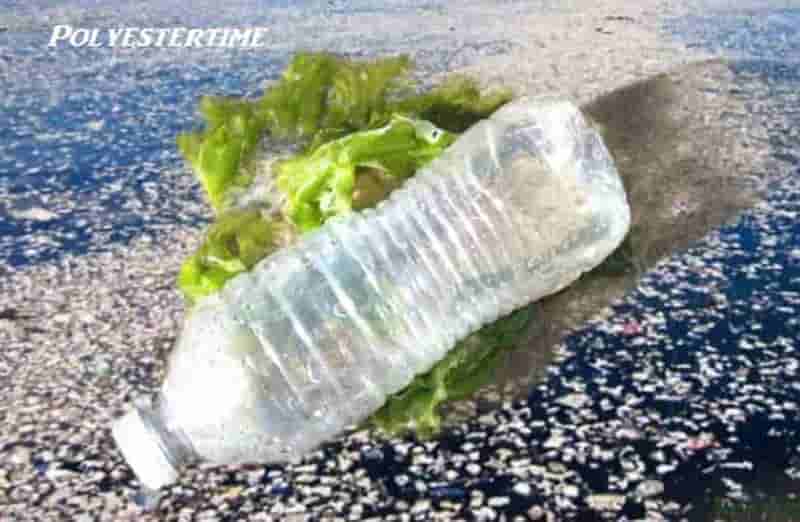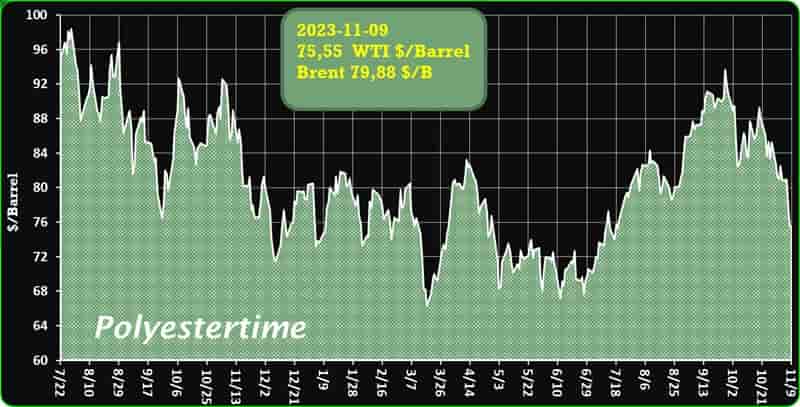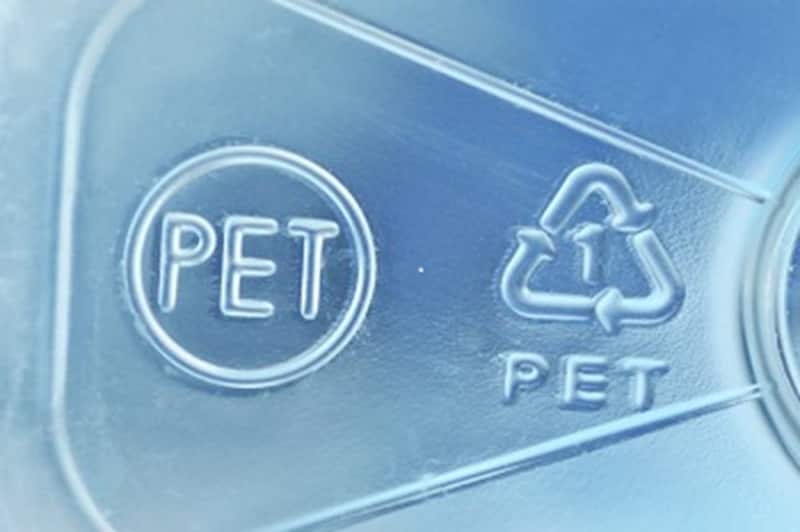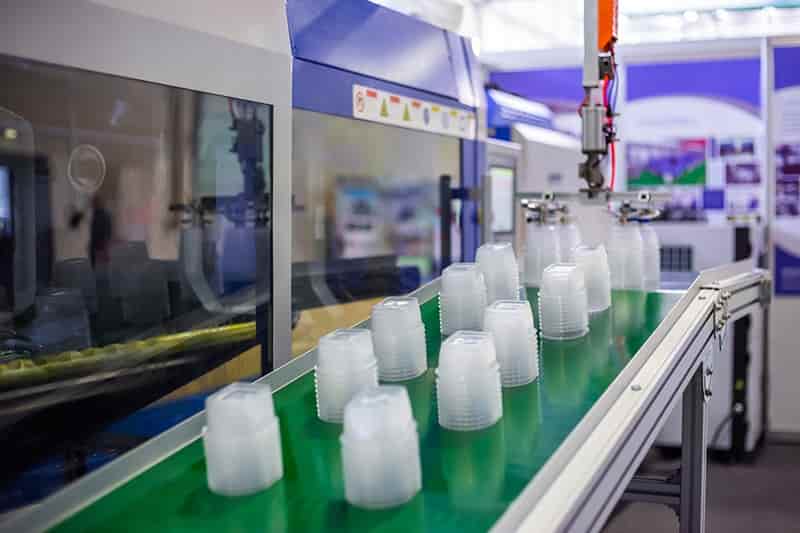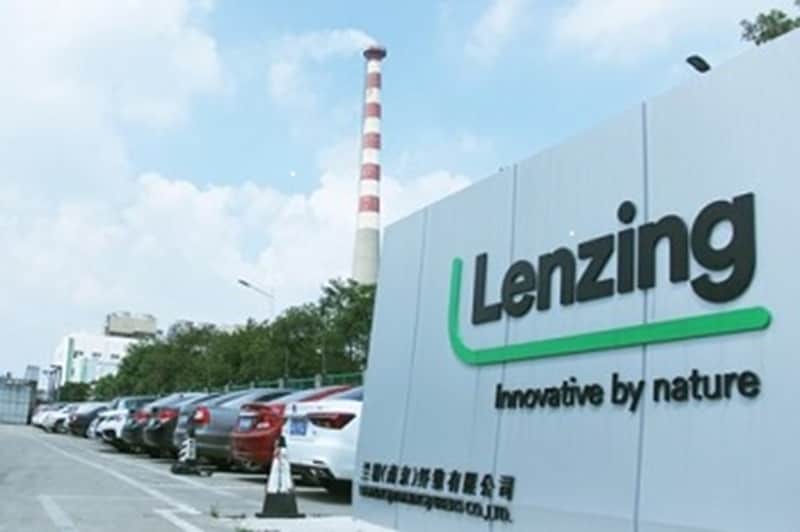With the introduction of the new Innosort Flake, Tomra provides the ideal flake sorting solution to help the industry recover more recyclable materials from any waste stream with maximum yield. Flake sorting
Alberto Piovesan, Global Segment Manager Plastics at Tomra Recycling Sorting, explains: ”Given recycled content targets in Europe and elsewhere, the market needs to prepare for future demand. Recyclers need solutions to produce high-quality post-consumer recycled content in sufficient volumes.
At the same time, they strive for reliable sorting results and operational flexibility. With the new Innosort Flake, this is now possible.” Flake sorting
Any colour, any polymer
Equipped with a powerful sensor combination, the new Innosort Flake sorts polymers by material type and colour, removing any impurities to create pure fractions.
Thanks to its advanced near-infrared (NIR) spectrometer, the machine precisely detects various polymers, allowing for the recovery of recyclable materials from highly contaminated infeed. With this technology, plastics recovered from mixed waste, for example, can be sorted for recycling, providing access to more recyclable materials that otherwise would be lost or downcycled for lower-grade applications. For instance, polyolefins (PO), such as polyethylene (PE) and polypropylene (PP), are often found comingled in the same waste stream. With the new Innosort Flake, mixed plastic fractions that have been shredded and washed can be sorted into clean fractions of PET, PP and PE and other materials that meet the quality requirements for extrusion and the creation of high-quality post-consumer recycled (PCR) content. Flake sorting
Moreover, plant operators profit from the machine’s unmatched colour sorting performance. Its enhanced optics, with a changeable colour background and dual-sided high-resolution cameras, detect millions of colours and create single-colour fractions. Its high contrast imaging can even differentiate between white opaque and natural, transparent and translucent flakes, reducing material losses and maximizing yield.
Piovesan adds: ”The new Innosort Flake is designed to sort any colour, any polymer, at the same time. It levels the playing field for recyclers and gives them maximum flexibility to respond to the respective market demands. If an operator wants to purify PET this month and produce a clean blue PP next month, it is technically possible with the new machine. What’s more, it is cost-effective.” Flake sorting
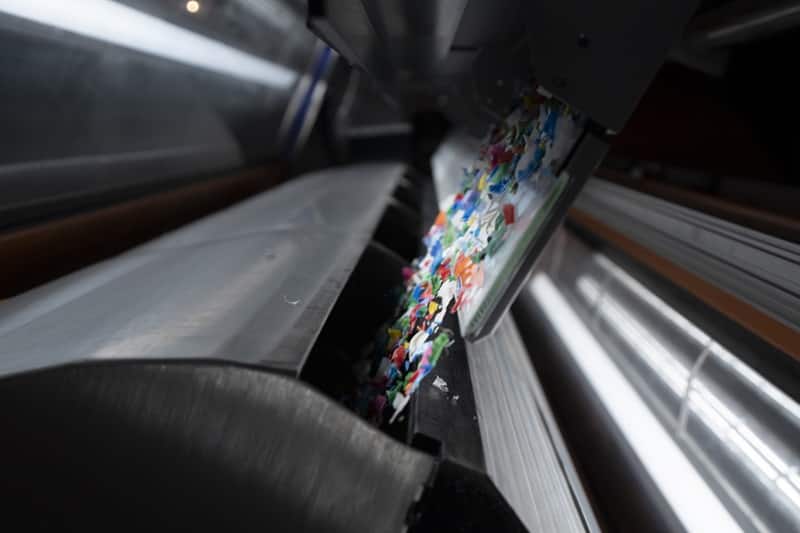
Borealis, TotalEnergies Start Up Baystar PE Joint Venture
New unit brings Borealis’ proprietary Borstar PE technology to North America and completed the partners’ integrated petrochemicals venture
Borealis and TotalEnergies recently brought on stream their ambitious Baystar joint venture’s new 1.3-billion lb/yr (625,000 m.t.) in Pasadena, Texas, which brings to North America Borealis’ proprietary Borstar 3G technology and more than doubles the current production capacity at Baystar’s site.
Referred to as Bay 3, the unit completes the partners’ integrated petrochemicals venture, which includes the expanded Bayport PE facility, including two existing legacy PE units producing 881.8 million lb/yr, and the 2.2- billion lb/yr ethane cracker at the TotalEnergies Platform in Port Arthur, Texas, brought on stream in mid-2022.
Borstar technology has been shown to produce advanced value-added polymers with enhanced sustainability by enabling light-weighting and the incorporation of greater amounts of post-consumer recycled materials in a variety of end products, serving the energy, infrastructure and consumer products industries. Flake sorting
According to Baystar president, Diane Chamberlain, “Borstar technology enables our technical, production, and sales teams to collaborate in the creation of the highly customized products our customers require to remain competitive and meet consumer demands” She notes that these PFAS-free materials, enable more than 50% post-consumer recycled material in some end products. Also, due to their broad molecular weight distribution, Borstar PE offers superior physical properties with no need for process aids or additives.
Said Borealis CEO Thomas Gangl, “The arrival of Borealis’ proprietary Borstar technology in North America by way of Baystar marks, in line with our owners’ strategies, a crucial step for us in becoming a global leader in advanced and sustainable chemicals and material solutions,” Expanding and deepening our footprint through Baystar enables us to better serve customers and partners by offering improved access to Borstar based products produced right here in North America.” Flake sorting
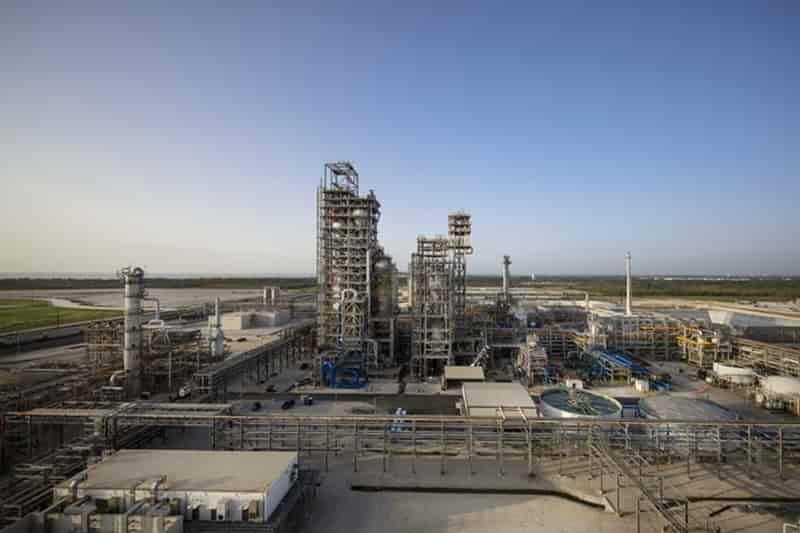
Opinion: Time to clear up the ocean-bound plastic issue
We need to demystify ocean-bound plastic and educate people on its potential
We all know that plastic in our oceans is an environmentally devastating problem that is only getting worse. According to the UN’s Sustainable Development Goals Report, over 17 million tonnes of plastic entered the ocean in 2021, and that number is set to double or even triple by 2040. The collection and recycling of ocean-bound plastic has great potential to address this spread, but sadly, not enough businesses and consumers understand what it is, which has led to a general misunderstanding of the category.
For many, recycled ocean-bound plastic conjures up images of plastic being pulled directly from the sea or from around the neck of a sea turtle, which is simply not the case. Plastic pulled from the ocean has already been degraded by the salt and sun, making it very difficult to recycle at scale. Flake sorting
At best, well-meaning companies try to engage with consumers by using this emotive but misleading imagery as a shorthand – and, at worst, bad actors in the industry deliberately conjure this image in order to greenwash or generate confusion.
Our operating definition of ocean-bound plastic is inspired by the pioneering work of Distinguished Professor of Environmental Engineering and 2022 MacArthur Fellow, Dr. Jenna Jambeck, and her team. They utilised various criteria in their research, and it is important to consider these factors together, rather than looking at one aspect of the problem in isolation.
The country or region lacks proper waste management infrastructure and collection incentives.
The infrastructure is being overwhelmed by population growth and/or increased tourism.
There is a significant risk to wildlife and biodiversity if plastic contaminates their ecosystem. Flake sorting
It is found within 50km (30mi) distance of an ocean coastline or major waterway that feeds into the ocean.
The Prevented Ocean Plastic programme focuses on addressing these concerns in tandem, working with at-risk coastal communities to create an intervention before this plastic reaches our waterways, where it can cause immeasurable harm.
